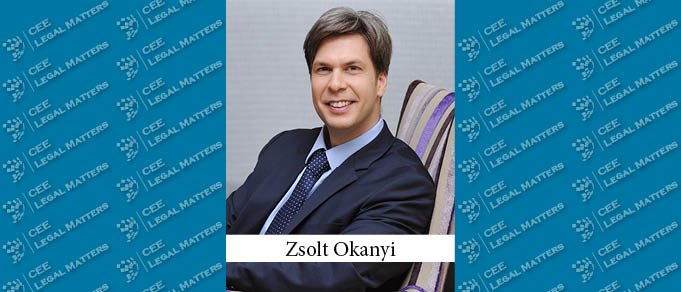The hot practice for CMS in Hungary is Dispute Resolution, and Zsolt Okanyi, Partner and Head of Dispute Resolution both for Hungary and globally at CMS, explains that his team's current workload is primarily driven by the COVID-19 crisis.
"A number of arbitrations – some at the ICC, some local – that are primarily linked to infrastructure construction are keeping us busy," Okanyi says, pointing to "one involving the reconstruction of railways, and another one related to the construction of gas pipelines," as examples. Delays in construction were caused by the pandemic, giving rise to disputes over penalties.
Another type of work relates to internal investigations – the number of which has seen quite an increase according, Okanyi reports, noting that his team is currently dealing with more than five such projects.
Finally, Okanyi says, his team is dealing with a "huge Italian portfolio held by a large insurance company in Hungary that has generated over 100 cases."
"We've seen a correlation between crises and an increase in our disputes-related workload in 2009-2010 as well," Okanyi says, adding: "When economic distress appears, the number of transactions declines while disputes soar, most often resulting from a drop in the flexibility of parties involved." Manufacturers, for example, had to deal with production forecasts being thrown off by the pandemic, and Okanyi describes one CMS client – a car parts manufacturer – who was caught between having placed raw material orders while seeing his own orders from car manufacturers canceled.
And the slow-down in the courts has caused quite a pile-up of work as well, according to Okanyi. "Like in many countries, court hearings ceased in March, April, and May of last year. Later on, there were two solutions implemented – one where hearings would take place through submitting documents to the courts only, and a second, once courts reached the needed level of IT preparedness, where hearings were being held online." Both added to the workload. "The first solution meant that, as opposed to a two-hour hearing where I could put everything forward, a full day was spent on drafting the needed documentation. The second registered a lot of delays and waiting times to have everyone log in for the hearings – again, more time spent on this."
The cancellation of court hearings during the several months' lockdown last spring caused a considerable backlog as well, Okanyi reports, delaying both ongoing cases and new filings, leading to "an extremely high number of court hearings at the moment."
On the investigations side of things, Okanyi explains that, during such crises, people are "fearing for their existence and their way of life," which, unfortunately, means that some will more easily cross previously clear lines, and "end up bringing home the pencil from the company's cupboard."
Looking into the future, Okanyi says that he expects difficulties related to the Covid-19 crisis to "continue to trickle down until fall, when we hope for a return to normality in how disputes are handled." Still, he says, that "will not impact the origins I mentioned with both companies and individuals remaining existentially distressed, so I expect both the increase in disputes and number of internal investigations to continue."
















